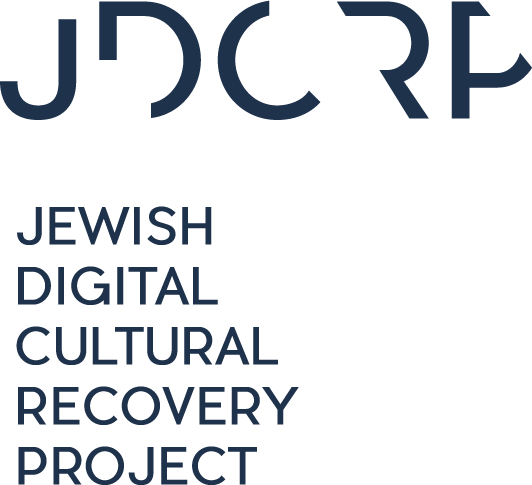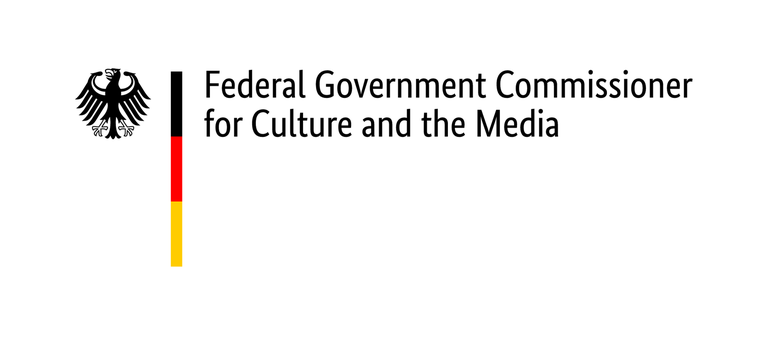Introductory Seminar // How to Research Nazi-Looted Art | Part II
SOURCES FROM THE POSTWAR PERIOD (AFTER 1945)
The Jewish Digital Cultural Recovery Project Foundation is creating a cross-searchable digital platform for archival documentation, research, and education on the looting of Jewish-owned cultural property by the Nazis, their allies, and collaborators. JDCRP actively promotes access to evidence of Nazi looting and makes documents digitally available and searchable for research.
JDCRP offers an online introductory seminar in cooperation with its project partner, the Zentralinstitut für Kunstgeschichte in Munich, and in cooperation with Technische Universität in Berlin. Although students (all levels) are the primary target group, the seminar is open to all interested. No specific prior knowledge is required, aside from general experience with internet research.
The introduction provides insight into the topic using sources that document the historical processes of exclusion, persecution, expropriation or confiscation, and “Verwertung” (exploitation) of Jewish cultural property. The online seminar is also a first introduction to basic research strategies and techniques. It allows participants to exchange ideas and concerns with experts in the field.
The online seminar consists of three parts, each lasting 120 minutes: October 9, 16, and 23, 2025, from 4:00 p.m. to 6:00 p.m. CET/10:00 a.m. to 12:00 p.m. EST.
While attendees are encouraged to participate in all three sessions, the series is designed to welcome new participants at every step. Each session offers ample opportunity for questions and discussions; interaction and feedback is highly encouraged and will benefit the setup of similar courses in the future
The three sessions are structured chronologically and thematically, building on one another:
I. October 9, 2025: Sources from the Nazi Era (1933–1945)
- Presenting digital and analog sources of perpetrator documents
- Digital resources: “Einsatzstab Reichsleiter Rosenberg” (ERR) / Jeu de Paume database, Hermann Goering database, Sonderauftrag Linz database
- Analog and digital resources: ERR image archive in the photo collection of the Zentralinstitut für Kunstgeschichte, auction catalogs, and magazines from the Nazi era (some via German Sales Portal)
II. October 16, 2025: Sources from the Postwar Period (after 1945)
- Presenting digital and analog sources of Allied Forces documents from the immediate postwar period, compiled in the Central Collecting Points (CCP)
- Digital resources: Munich CCP database, Fold3 platform, Bundesarchiv finding aid; JDCRP digital platform: records of the Marburg CCP and Wiesbaden CCP
- Analog: Photographs from the Munich CCP in the Zentralinstitut photo collection, publication by Iris Lauterbach on the activities of the Munich CCP.
III. October 23, 2025: Other Important Digital Sources (art dealer archives, key databases, etc.)
- Research projects: “Degenerate Art” Database, Mosse Research Initiative, etc.
- Key databases: Lost Art, Proveana, Getty Provenance Index, etc.
- Research on key players (art dealers, both Jewish and non-Jewish): Hugo Helbing (annotated auction catalogs), German Sales Portal, Böhler re:search, Galerie Heinemann online, research data on the Weinmüller auction house, etc.
- Wiedergutmachungsportal (German reparations portal)
Fundamental questions are also discussed in each session:
- What digital resources do archives, libraries, museums, and the art trade currently provide? Why do they do so?
- Which sources still need to be consulted in analog form?
- What digital resources are currently offered by JDCRP? Which will be offered in the future on JDCRP’s digital platform?
- What is the difference between Lost Art and Art Loss?
- Which databases are suitable for which queries?
- What should one pay attention to when researching?
- To get search results, what do I need to know and what search terms should I use?
- Why can certain objects or persons/names be found, but others cannot?
- How can digital sources be linked with analog sources or documents?
- What does “source criticism” mean when dealing with analog and digital sources?
- How can I find out if Jewish families lived on a particular street and about their fates?
- How can I find out what happened to specific artworks and/or other private objects and collections from the Nazi era until today?
The three-part online seminar is itself an experimental educational pilot project: What can (actually) be taught in this format? What knowledge, competences and skills can be acquired in this way? Feedback from participants in each session helps JDCRP to tailor education programs to expectations, wishes, and needs. Through participant interaction, JDCRP also aims to improve its understanding of researchers’ needs to make its digital platform as useful as possible. All participants are therefore asked to provide feedback on the seminar through interaction with the facilitators.
The three sessions will be facilitated by JDCRP experts such as Deidre Berger (Chair, JDCRP Executive Board); Dr. Wesley A. Fisher (Deputy Chair, JDCRP Executive Board; Director of Research, Claims Conference and World Jewish Restitution Organization); Anne Uhrlandt, MA (Senior Research and Documentation Officer, JDCRP); Adjunct Prof. Dr. Christian Fuhrmeister (Zentralinstitut für Kunstgeschichte/LMU Munich); and Junior Prof. Dr. Meike Hopp (Technische Universität Berlin).
_____
PARTICIPATION: Participation is free of charge. No registration is required; simply enter your first and last name and email address to access the Zoom meeting:
https://us02web.zoom.us/meeting/register/laNQ-wx7QmGGIsA4MVrm7Q. The seminar sessions will be recorded for internal use; individual recording of the event or parts of the event, as well as screenshots, are not permitted. By participating, you accept these terms of use.
_____
The seminar is part of a project co-funded by the European Union and the Conference on Jewish Material Claims Against Germany (Claims Conference), sponsored by the Foundation “Remembrance, Responsibility and Future” (EVZ), and supported by the German Federal Ministry of Finance (BMF) and the German Federal Government Commissioner for Culture and the Media (BKM).





